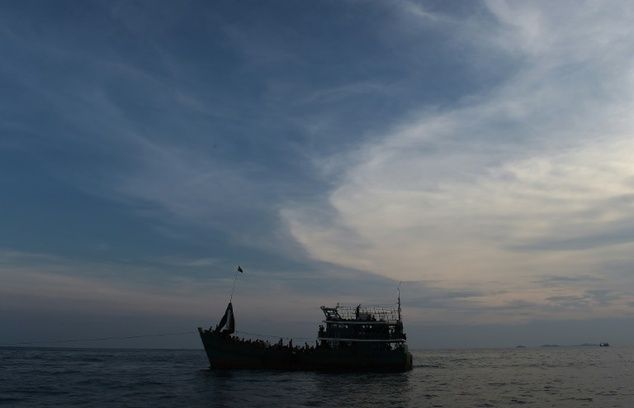This year’s Global Slavery Index has put Thailand in 20th place based on the country’s percentage of slaves among the population. It estimates that almost a half-million people in Thailand are victims of forced labor.
There are 425,500 modern-day slaves in Thailand (0.63 percent of the country’s population of 68 million) who are forced labor in the commercial fishing, domestic labor trades and in commercial sexual exploitation, according to the report, which was conducted by Walk Free Foundation, an organization that aims to end modern day slavery.
So, while we have less slaves than countries like North Korea, which topped the global list with 1.1 million slaves (4.3 percent), followed by Uzbekistan (3.9 percent), and Cambodia (1.6 percent), we have more slaves than places like Nigeria, Kuwait, Malaysia, and Kenya, UAE, Saudi Arabia and China.
About a third of the human trafficking victims recorded by the Thai government in 2014 were victims of commercial sexual exploitation. Thailand’s massive sex industry fuels the exploitation of women and children. Many of the younger victims are forced into prostitution just to have food that day or a place to sleep that night.
The report also said many of these victims are vulnerable because of their statuses as migrant workers, stateless hill tribe members, and others who can’t come forward to complain about their situations for legal or survival reasons.
Migrant workers are often exploited as cheap labor as they’re always under the threat of deportation and rely on one single employer for their ability to stay in the country and work. Their vulnerability has led to being sexually or physically abused. Employers may also demand money or withhold wages to pay for work permits, lodging and meals.
Forced labor in the Thai fishing industry (on boats and processing plants) enslaves men, children and women from across the Greater Mekong Subregion. The USD7 billion industry is rife with men and young boys forced to live on ships in inhumane conditions, sometimes for years at a time. Such as the recent high-profile case of Myint Naing, who remained at sea for 22 years.
Police corruption is an issue related to human trafficking. According to the report, “Thailand’s most senior police investigator into human trafficking fled to Australia to seek political asylum, fearing for his life after he uncovered complicity of influential figures in the Thai government, military and police.”
The business interests of some police and public officials are in conflict with their public service duties.
The current Thai governmental situation with regards to modern slavery is that, since 2014, Prayut holds unlimited powers as the National Council for Peace and Order (NCPO) chairman without any oversight or accountability.





Reader Interactions